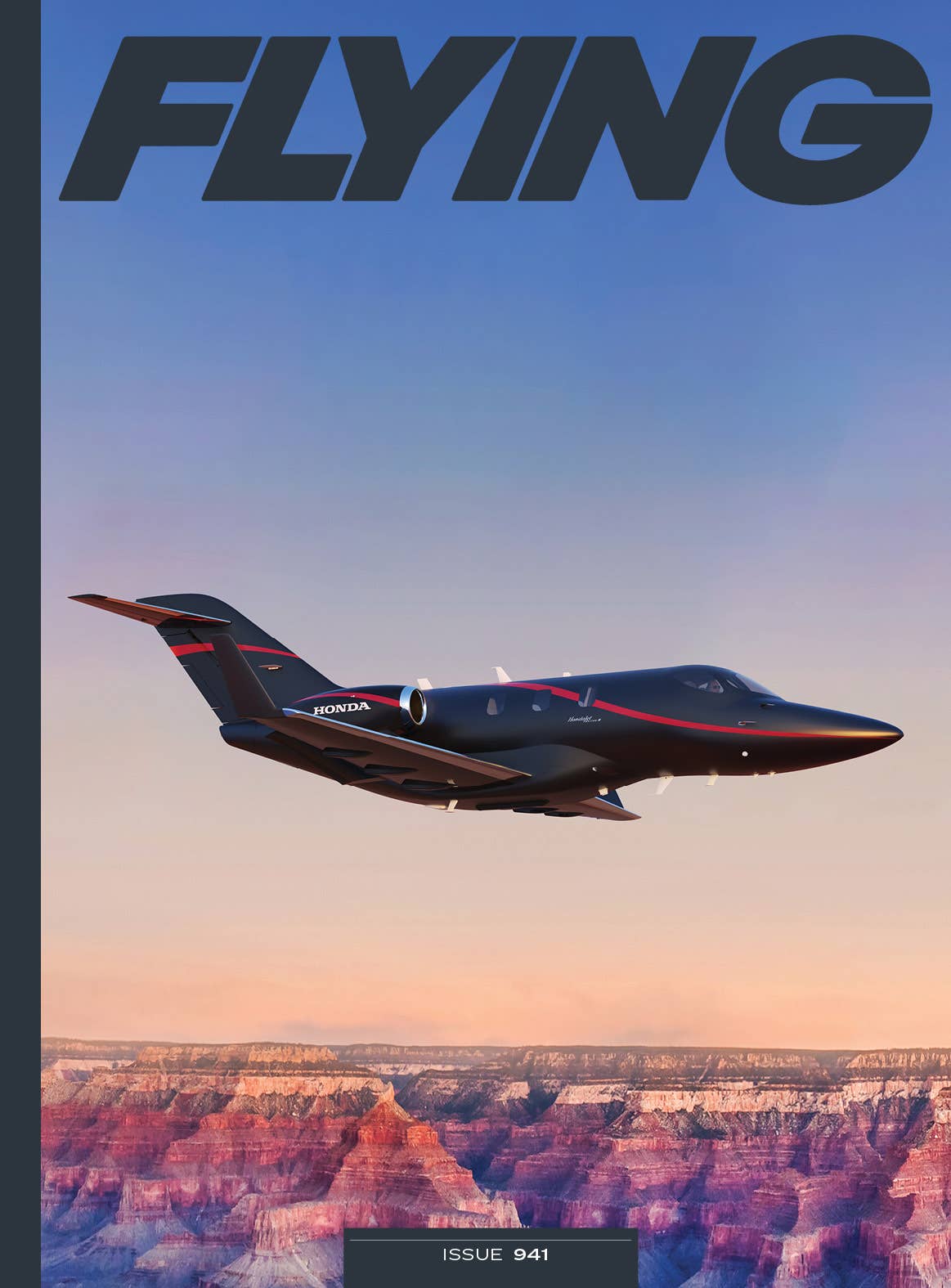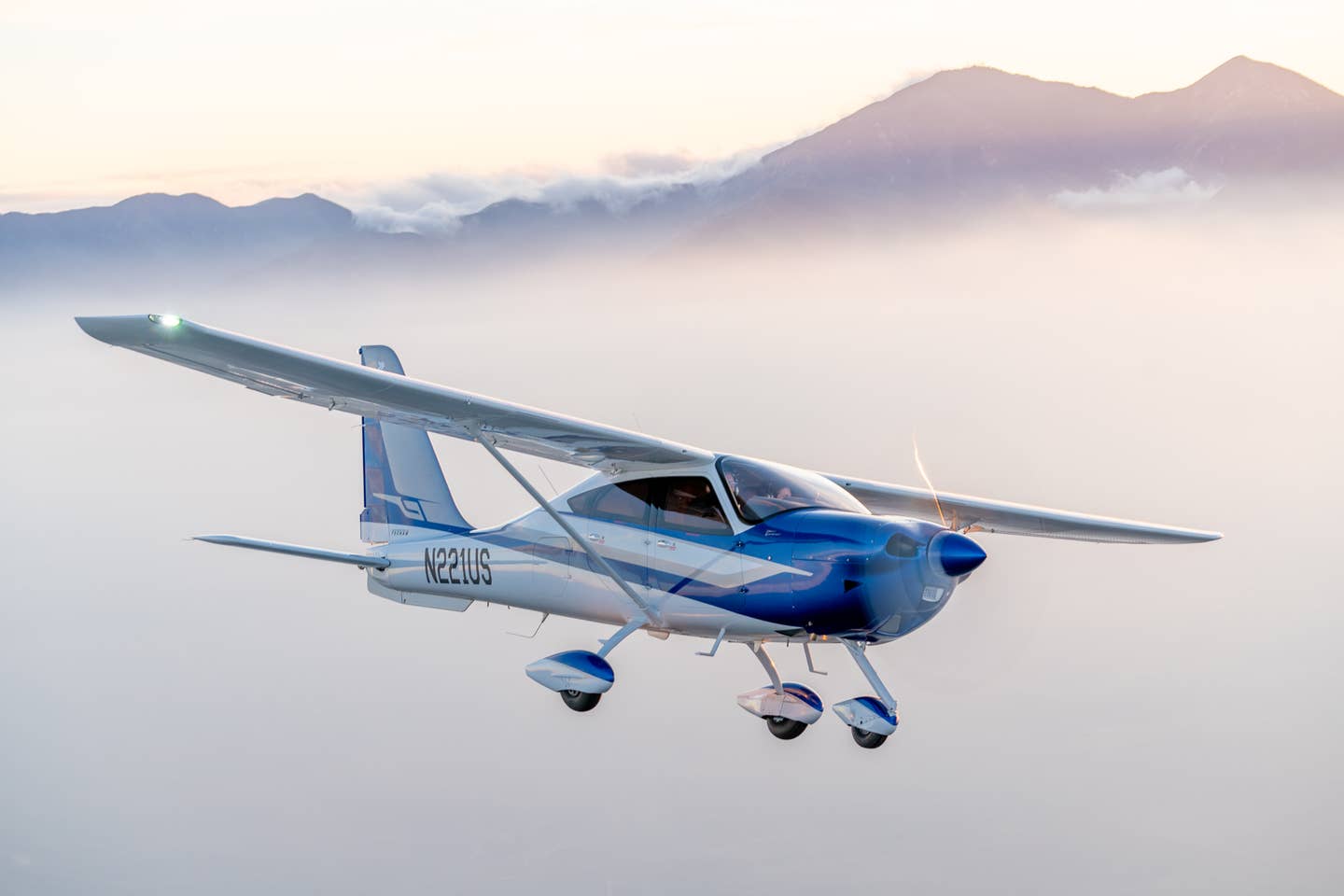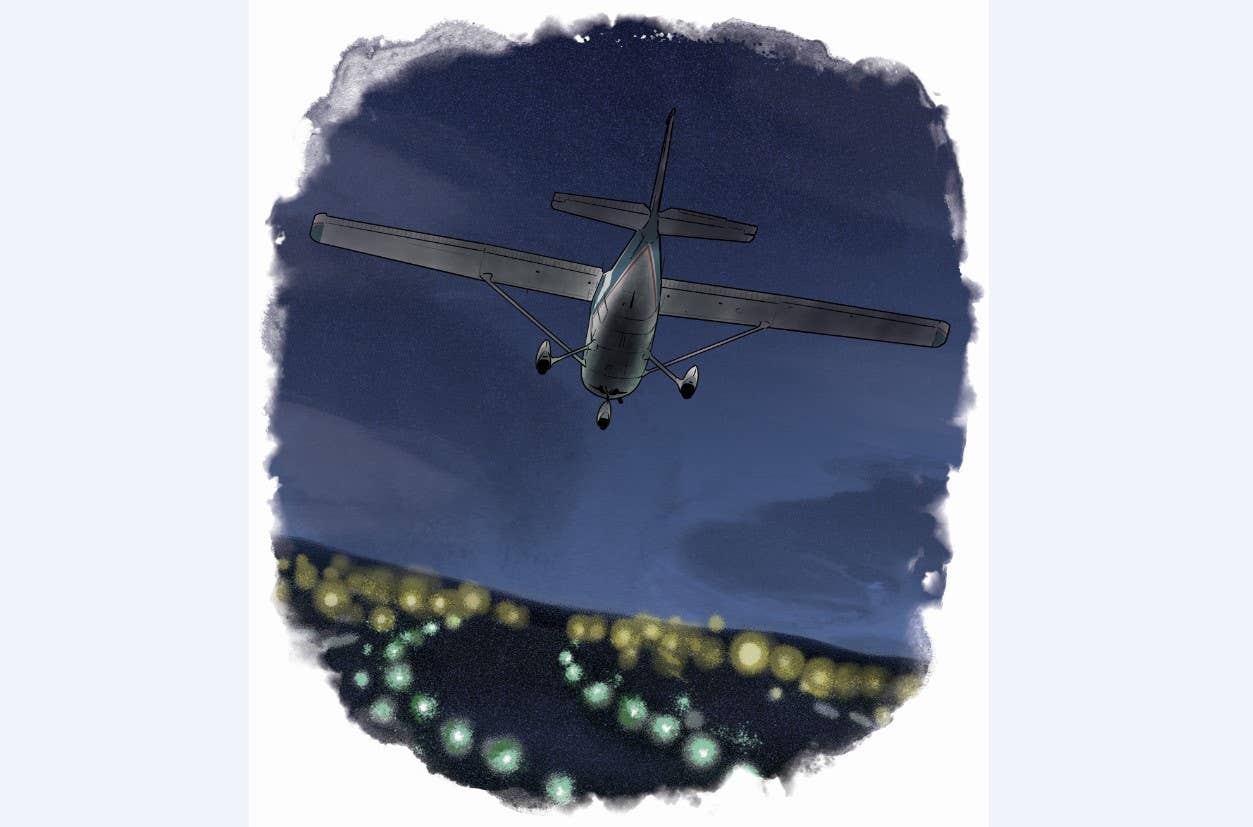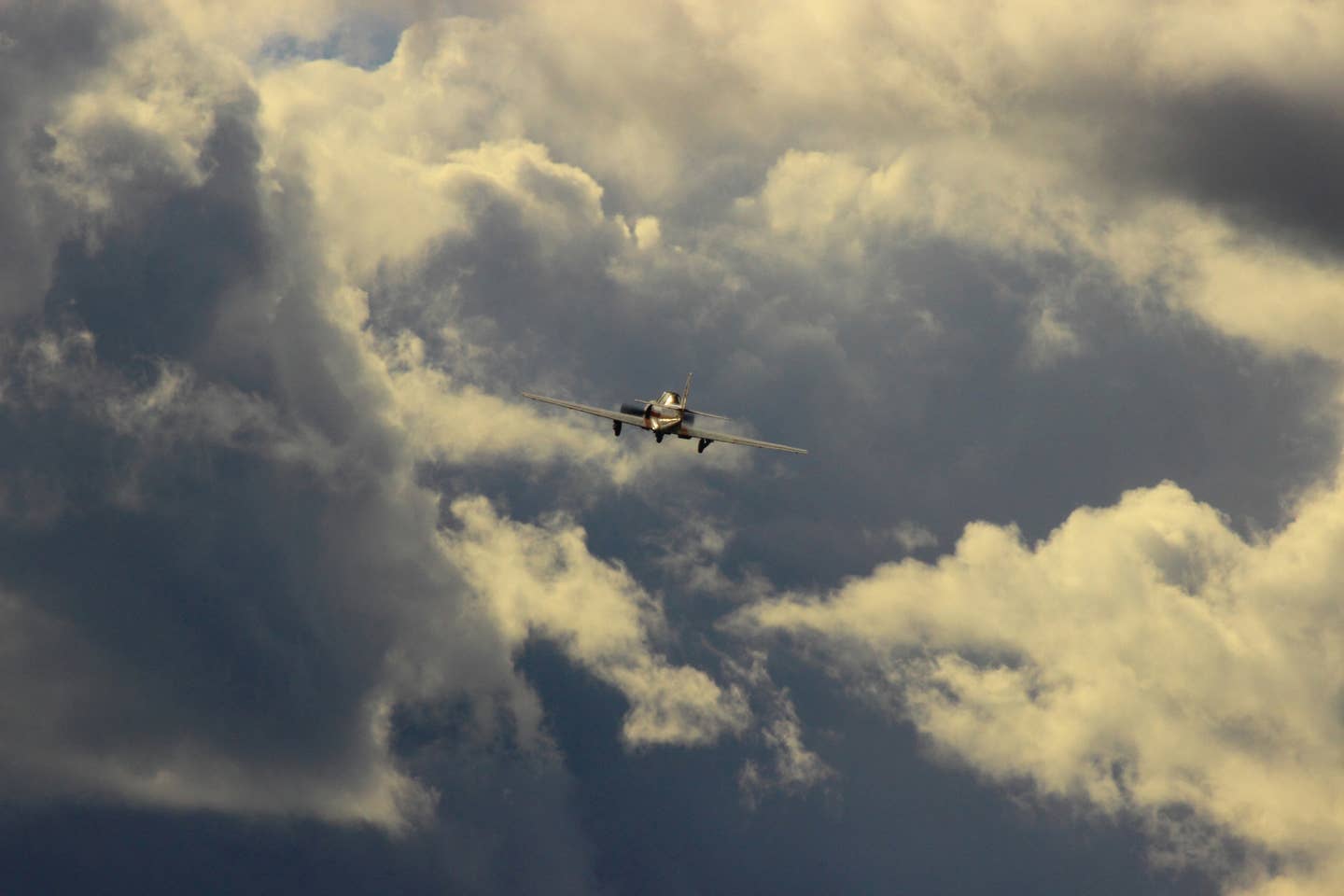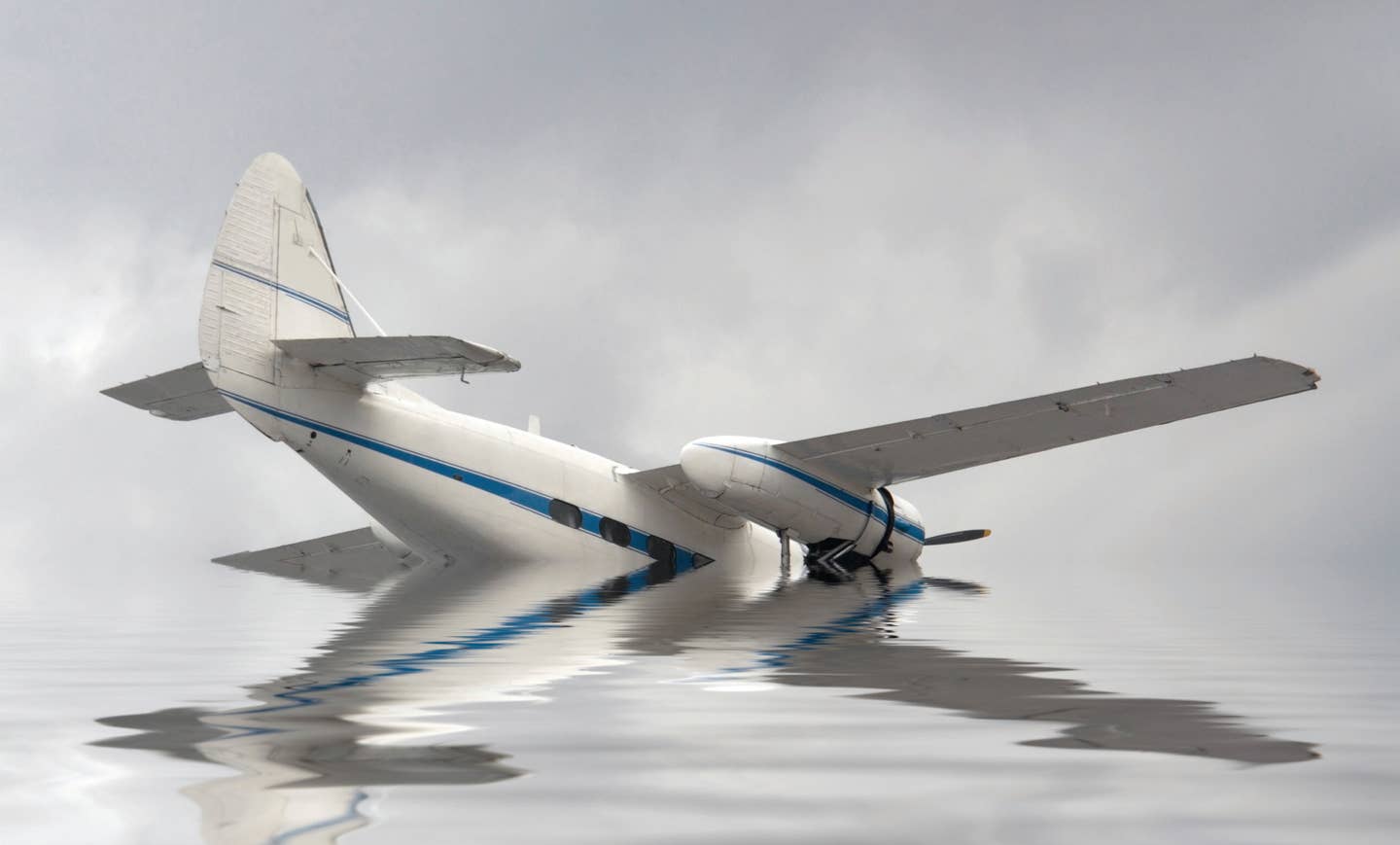A Flightless Bird Returns to the Skies
When Dawn and I bought our previous airplane, a 1953 Piper Pacer, we vowed to fly it at least ten hours a month, and indeed we clocked some 220 hours over 18 months of ownership. This time around, I’ve only flown our Stinson 40 hours since buying it in August.
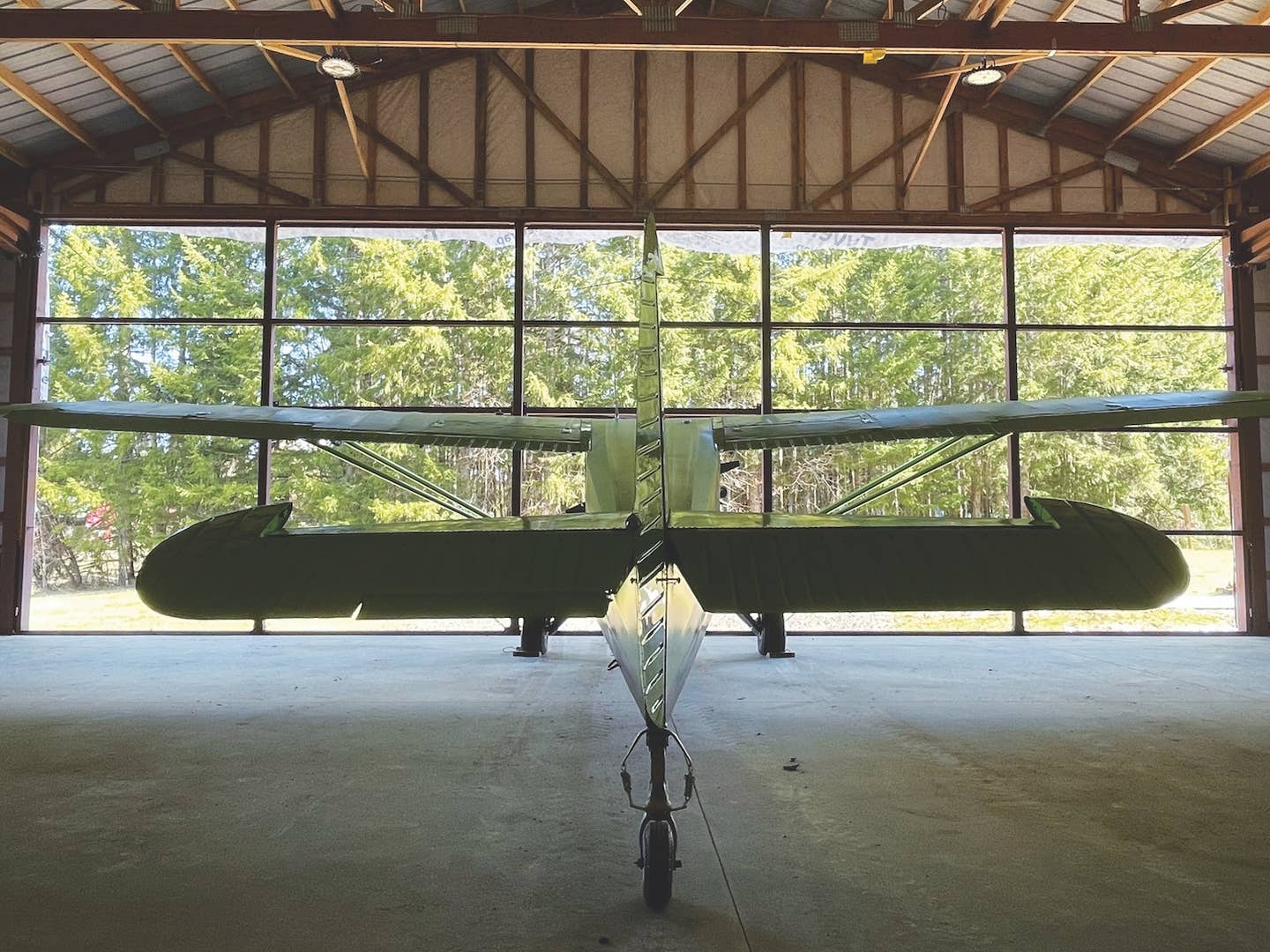
The anticipation of a return to the skies touches both pilot and airplane. [Credit: Sam Weigel]
Looking down the western slope of our home airstrip, one’s first impression is of a lot of very large trees, both bounding the runway and beyond. The second thing you notice is the striking, stirringly vertiginous wall of the Olympic Mountains, seemingly close enough to touch, but in fact a good ten miles distant, across the Hood Canal. The terrain carries no threat to the flight Dawn and I are about to take, but the trees are another matter, for they thoroughly blanket the four miles of rolling terrain from here to saltwater’s edge, with nary a scrap of pasture to put down the ship in case of trouble. I am conscious of this fact every time I take off, but especially so today, for it has been nearly eight weeks since our colorful 1946 Stinson 108 last took flight. But the 150 hp Franklin engine is warmed up, the run-up was smooth, and the gauges are in the green. I push the throttle to the firewall and, with all six cylinders doing their thing, we accelerate smartly down the grassy strip.
If you're not already a subscriber, what are you waiting for? Subscribe today to get the issue as soon as it is released in either Print or Digital formats.
Subscribe NowWhen Dawn and I bought our previous airplane, a 1953 Piper Pacer, we vowed to fly it at least ten hours a month, and indeed we clocked some 220 hours over 18 months of ownership. This time around, I’ve only flown our Stinson 40 hours since buying it in August. This is partly because Pacific Northwest winters, while much milder than in Minnesota, offer far fewer days that are flyable in a strictly VFR airplane. Secondly, I’ve been quite busy finishing our hangar apartment and that’s taken up the vast majority of my time when I’m not flying for work.
Still, I know there is nothing worse for an airplane—or a pilot!—than sitting on the ground, and so I’ve tried to take the Stinson for at least a short flight once every week or two to get the oil up to temp. Unfortunately for the last month it has been imprisoned in its hangar by an impressively solid 44-by-15-foot Higher Power hydraulic door frame, which we assembled and hoisted into place before we had power in the hangar to actually open it. The electrician finally showed up only yesterday after several weeks’ delay. In the interim, we have had some beautiful VFR days that hint at the coming of spring, and I’ve been rather frustrated at my inability to take my flightless bird aloft.
Yes, I have been flying the Boeing 737 plenty—a bit more than I’d like, actually. And I’ll admit, there have been periods of my life where airline flying scratched that itch I’ve had since childhood. It just doesn’t quite do the trick right now. This probably seems absurd to the multitude of young pilots just beginning their careers, casting about for any bit of flight time they can snag and dreaming of the prospect of getting their hands on anything that burns jet-A. I know this; I was that kid once. To me, it doesn’t seem so long ago.
When I started flying in 1994, I had just turned thirteen. Age and finances dictated that flight lessons were a once-a-month event, and I remember the intense yearning that accompanied each ground-bound interval. I thought about flying, talked about flying, literally dreamed about flying as I mowed lawns, shoveled driveways, and did odd jobs to scratch together the $58 that would buy an hour of dual in the Cessna 150. Every once in a while I came up short, and then there was an excruciating two-month flightless gap—and one of eleven weeks in which I tearfully contemplated quitting. As I got older and found steady work, though, the lessons became more frequent, especially in the run-up to my 16th and 17th birthdays. Nothing made me happier than being able to fly most every week. It was in this frame of mind that I chose to pursue a flying career.
At eighteen, I headed to the University of North Dakota and, unleashed by my sudden freedom to amass eye-watering student loans, seldom went three days without flying. I was in hog heaven for the first year or so. But I still remember the first time I woke up and realized, with a groan, that I had a flight scheduled for that morning. A lightbulb went off: So this is what it means to be a professional pilot. You don’t always want to fly, and you do it anyway. That realization was punctuated during my first summer of flight instructing in Southern California when I flew 400 hours in three months and had only a few days off.
Continuing to instruct during my senior year at UND, my logbook records a ten-day flightless gap from September 7 to 17, 2001. It seemed much longer, and flying felt very different thereafter. I knew that my career had just taken a drastic turn, and I steeled myself for an extended grind. In the two years after graduation, while instructing and flying Part 135 cargo, the only time I went more than two days without flying was a nine-day pause for my wedding and honeymoon. Freight dogging, in particular, was incredibly tough—in retrospect, the hardest and most dangerous flying I ever did. And yet my overarching memory of that period was how flying became completely commonplace: It was just what I did. Fascination was replaced by familiarity. I didn’t lose my love of flight, but its nature changed markedly. If taking wing no longer made my heart flutter, I found joy and comfort in looking down upon the unsuspecting world from my daily perch, and being truly and utterly at home.
Now being ground-bound held no measure of yearn- ing for me, for I always knew that I’d return to my home in the air soon enough. At the regional airlines, I bid schedules that created flightless gaps of weeks or even a month, the better to accommodate terrestrial pursuits like backcountry camping, motorcycling, and international travel. I got back into general aviation, started flying old taildraggers, and rediscovered the sort of flight that still makes my heart go pitter-patter (sea- planes, gliders, and skydiving do the trick, too). When I was diagnosed with Crohn’s Disease and was grounded from flying airliners while awaiting a special issuance medical, sport pilot rules still allowed me to fly a Piper J-3 Cub, which was a great comfort as I pondered the possibility of a life in which the sky was no longer home. My return to the flight deck after four months’ absence was a joyful affair, and I vowed never to take my privileged position for granted again.
And then, after I’d been hired at my current airline, Dawn and I decided to sell our home and the Pacer, buy a 42-foot sailboat, and run away to sea. I transferred to a highly seasonal fleet and base that allowed me to take lots of time off during the cruising season, and for the first time since I was 13, I voluntarily ventured no higher than sea level for months at a time. Bearded and shirtless, I’d look up from tropical anchorages to spy an airliner flying far overhead, and it’d seem like a relic from another lifetime. Every eight weeks or so I’d endure a brutal shave and dig my mildew-spotted uniform out of the hanging locker, and then I’d commute up to Atlanta to reacquaint myself with the pleasures of flying the Boeing 757. It was always slightly unsettling at first, but by leg two it would be like I’d never left.
That’s what it feels like right now, as our roaring Stinson lifts from the grass and claws its way above the towering firs, revealing a striking panorama: the tree- lined, deep-blue ribbon of Hood Canal, backed by the snow-blanketed breadth of the jagged Olympics. It’s been eight weeks, but Dawn and I and our faithful old Stinson are comfortably back in our home element. The Franklin growls steadily as we gain altitude, and the full glory of our adopted corner of the world—snow-capped volca- noes, rolling hills, an intricate maze of saltwater coves and passages, sleepy fishing villages, gleaming steel cities, and—over it all—a dark-green carpet of giant firs and cedars—unveils itself before our eyes. This, too, is home. Here I am content. Here, with my adventurous wife by my side and with a good old airplane in which to explore our fascinating world, my wandering heart is full.
This column first appeared in the June 2023/Issue 938 print edition of FLYING.

Subscribe to Our Newsletter
Get the latest FLYING stories delivered directly to your inbox

